
2020 KDI School Library Top Checkout Books Lists
- Date 2020-10-14 06:49
- CategoryNews
- Hit2169
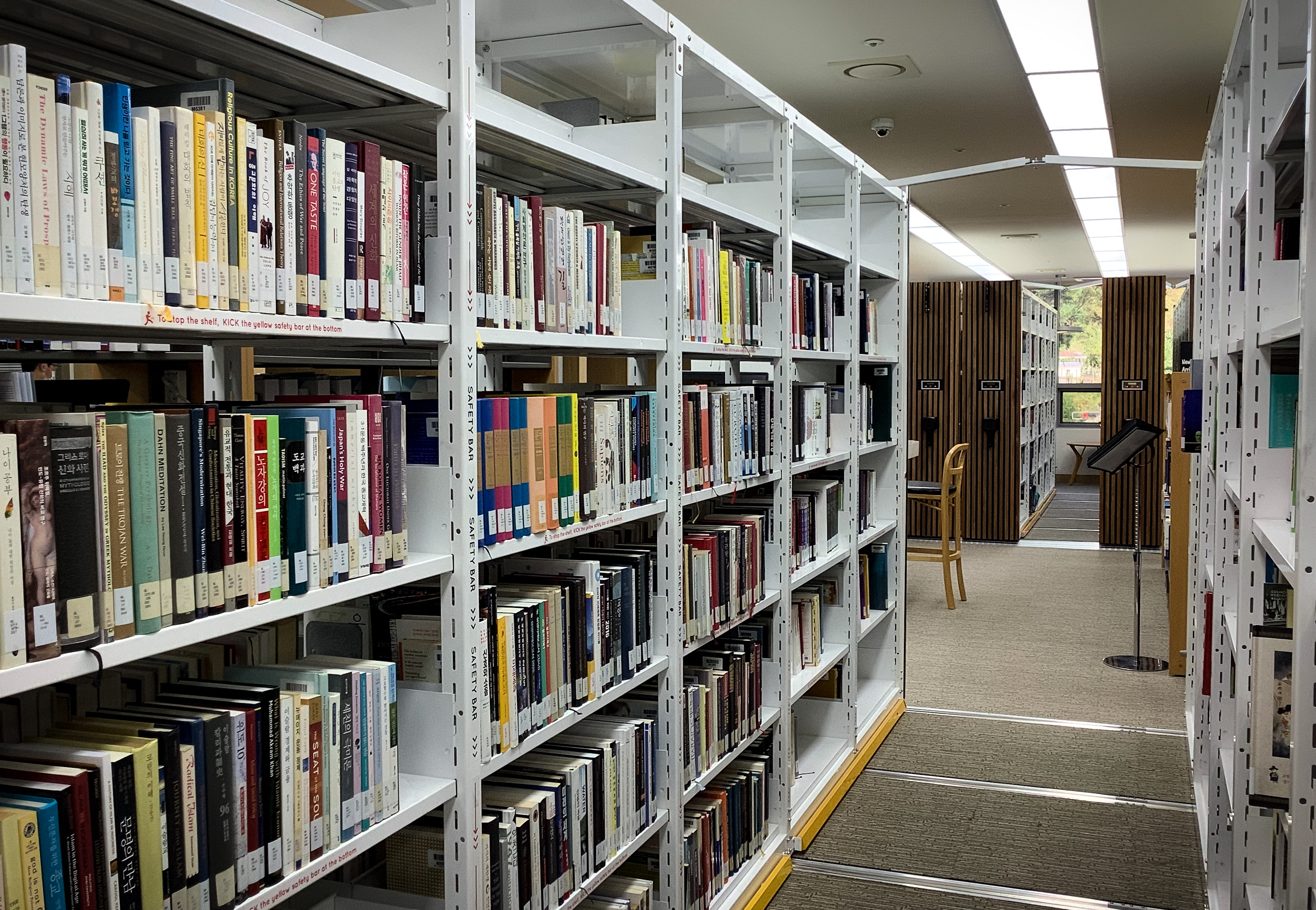
With the beginning of autumn comes a cool night breeze as summer fades. Many of you are probably looking forward to the passing of summer, especially the full rainy and typhoon season in Korea. If you live in Korea for a long time, you will hear a trite fall expression that "fall is the season for reading." It is derived from a poem written by Hanyu, a famous Chinese writer and philosopher from the Tang Dynasty. The poem was meant to encourage his son to read books. The expression stems from the verse: “you come close to the lamplight as fall comes, then why don’t you open a book?" How about filling this fall with reading? Here is the 2020 top checkout list at KDI library. (For better access, major textbooks and texts with only Korean are excluded.)
10. Educated: A Memoir, Tara Westover
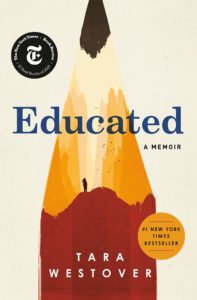 The story of a girl who escapes from her father’s denial of education and learns how to live her own life. This book is the first book and memoir of Tara Westover. Her father was a Mormon fundamentalist who believed that the end of the world was imminent and distrusted public education, so she did not attend school for 16 years. She skipped all her basic education courses, and she took the ACT by herself. When she enrolled in a university at the age of 17, she began her miraculous journey of learning. Through her own story, the author conveys the enlightenment of learning, a universal story of growth and learning, new perspectives on learning, and the will to change one’s own life.
The story of a girl who escapes from her father’s denial of education and learns how to live her own life. This book is the first book and memoir of Tara Westover. Her father was a Mormon fundamentalist who believed that the end of the world was imminent and distrusted public education, so she did not attend school for 16 years. She skipped all her basic education courses, and she took the ACT by herself. When she enrolled in a university at the age of 17, she began her miraculous journey of learning. Through her own story, the author conveys the enlightenment of learning, a universal story of growth and learning, new perspectives on learning, and the will to change one’s own life.
9. Ultralearning: Master Hard Skills, Outsmart the Competition, and Accelerate Your Career, Scott Young
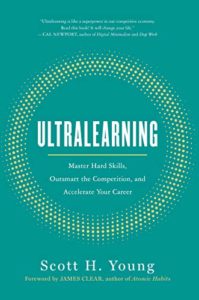 This book provides the secret to acquire knowledge at ultrahigh speeds and how to conquer MIT’s 4 year curriculum in only a year. Scott Young, an ordinary 28-year-old young man who read over the four-year MIT computer science curriculum in just 12 months without entering MIT, exclaims that “hurrying up to develop study, ability and career for yourself is truly necessary to live in this world.” He introduces the concept of ''ultralearning'' with nine absolute rules.
This book provides the secret to acquire knowledge at ultrahigh speeds and how to conquer MIT’s 4 year curriculum in only a year. Scott Young, an ordinary 28-year-old young man who read over the four-year MIT computer science curriculum in just 12 months without entering MIT, exclaims that “hurrying up to develop study, ability and career for yourself is truly necessary to live in this world.” He introduces the concept of ''ultralearning'' with nine absolute rules.
8. Do Llamas Fall in Love?: 33 Perplexing Philosophy Puzzles, Peter Caver
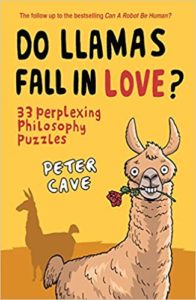 The author insists that philosophy, which is thought to be far from the real world, is actually the basis for a detailed understanding of our lives. This is about ‘life-friendly'' philosophy that lights up everyday misunderstandings and contradictions. The book encourages us to think hard to live our lives meaningfully. This book tells us about what we need now; not thinking less, but thinking more in a way that is full of amusement with simple and positive messages. The author enlightens readers professing that if we consider the world more deeply, it is more than meets the eye.
The author insists that philosophy, which is thought to be far from the real world, is actually the basis for a detailed understanding of our lives. This is about ‘life-friendly'' philosophy that lights up everyday misunderstandings and contradictions. The book encourages us to think hard to live our lives meaningfully. This book tells us about what we need now; not thinking less, but thinking more in a way that is full of amusement with simple and positive messages. The author enlightens readers professing that if we consider the world more deeply, it is more than meets the eye.
7. Poor Economics: A Radical Rethinking of the Way to Fight Global Poverty, Abhijit V. Banerjee
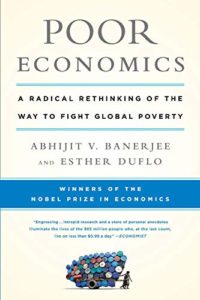 The poor behave much more carefully when choosing options because they have less. However, why do they have large families although they are poor? Why do they buy a TV although they are starving from lack of food? Why do they buy bricks instead of saving money to build a house? World-renowned development economist Abhijit Banerjee has identifies the answers to these questions by applying a randomized controlled trial and provides an effective method of aid through scientific and empirical evidence for the first time.
The poor behave much more carefully when choosing options because they have less. However, why do they have large families although they are poor? Why do they buy a TV although they are starving from lack of food? Why do they buy bricks instead of saving money to build a house? World-renowned development economist Abhijit Banerjee has identifies the answers to these questions by applying a randomized controlled trial and provides an effective method of aid through scientific and empirical evidence for the first time.
6. Talking to Strangers: What We Should Know about the People We Don’t Know, Malcolm Gladwell
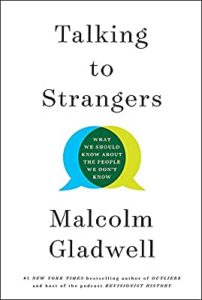 An work of advice for understanding others. We assume that a stranger is honest. We make the mistake that we can figure them out through facial expression, behavior, or speaking style. We don’t see the world we belong to. If we continue to rely on intuition to understand strangers, conflicts are unavoidable. This book is about communication and understanding. The author provides examples of tragic consequences and errors when we deal with strangers and suggests an alteration of strategy.
An work of advice for understanding others. We assume that a stranger is honest. We make the mistake that we can figure them out through facial expression, behavior, or speaking style. We don’t see the world we belong to. If we continue to rely on intuition to understand strangers, conflicts are unavoidable. This book is about communication and understanding. The author provides examples of tragic consequences and errors when we deal with strangers and suggests an alteration of strategy.
5. The Plague, Albert Camus
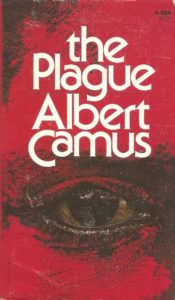 A masterpiece depicting social injustice and a realistic portrayal of human psychology. The novel is a chronicle of the various ways of life shown by the Oran City citizens, who are in crisis due to the outbreak of a plague. Although the plague is one of disease, it symbolizes war and confronts Nazism when you consider the background in which the work was written. The author gives a message about how to confront the ‘plague’ and find a remedy.
A masterpiece depicting social injustice and a realistic portrayal of human psychology. The novel is a chronicle of the various ways of life shown by the Oran City citizens, who are in crisis due to the outbreak of a plague. Although the plague is one of disease, it symbolizes war and confronts Nazism when you consider the background in which the work was written. The author gives a message about how to confront the ‘plague’ and find a remedy.
4. The Runaway Species: How Human Creativity Remakes the World, David Eagleman & Anthony Brandt
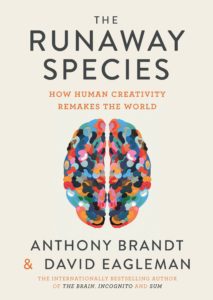 This book is written by a world-famous brain scientist, David Eaglemand, and a composer, Anthony Brandt, who has been studying the human spirit by combining art and science. It contains an intelligent and exciting journey that reveals secrets of the brain and creativity. Using the principles of brain functionality as a common research theme, it informs upon the secrets of the brain, which were created by traversing a 5 million-year history of humankind; from robots, computers, architecture and artificial intelligence to literature, music and art.
This book is written by a world-famous brain scientist, David Eaglemand, and a composer, Anthony Brandt, who has been studying the human spirit by combining art and science. It contains an intelligent and exciting journey that reveals secrets of the brain and creativity. Using the principles of brain functionality as a common research theme, it informs upon the secrets of the brain, which were created by traversing a 5 million-year history of humankind; from robots, computers, architecture and artificial intelligence to literature, music and art.
3. The Real Happy Pill: Power Up Your Brain by Moving Your Body, Anders Hansen
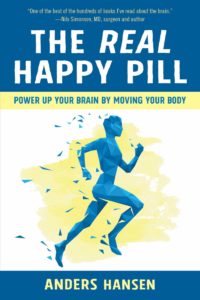 Psychiatrist Anders Hanses describes why the brain is made for exercise according to his research. The book is not a self-improvement only encourages you to start exercising. It explains how exercise affects the brain’s specific functions, production and action of hormones and other systems in a way that is closely related to how we often feel stress, depression, anxiety, happiness, and creativity. After reading it, you cannot help but think that there is no reason not to start working out right away.
Psychiatrist Anders Hanses describes why the brain is made for exercise according to his research. The book is not a self-improvement only encourages you to start exercising. It explains how exercise affects the brain’s specific functions, production and action of hormones and other systems in a way that is closely related to how we often feel stress, depression, anxiety, happiness, and creativity. After reading it, you cannot help but think that there is no reason not to start working out right away.
2. Tolstoy or Dostoevsky?, George Steiner
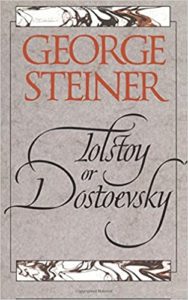 This book deals with the achievements made by two Russian writers, who achieved the highest peaks in Western literary history in the fields of literature, philosophy, and theology. The author asserts that the works of the two Russian giants stand tall among the highest peaks of Western novels and surpasses the masterpieces of Balzac, Dickens and Flaubert. The author examines the achievements of the two giants, linking the relationship between Tolstoy and Dostoevsky''s literature in Russia, a periphery of Western literature. He also provides insight on the influence of other masters of Western literature, from Homer to Dante, Shakespeare, Lacin, Corneille, Schiller, Balzac, Dickens, Flaubert and Gothic novels encompassing literature from history to theology.
This book deals with the achievements made by two Russian writers, who achieved the highest peaks in Western literary history in the fields of literature, philosophy, and theology. The author asserts that the works of the two Russian giants stand tall among the highest peaks of Western novels and surpasses the masterpieces of Balzac, Dickens and Flaubert. The author examines the achievements of the two giants, linking the relationship between Tolstoy and Dostoevsky''s literature in Russia, a periphery of Western literature. He also provides insight on the influence of other masters of Western literature, from Homer to Dante, Shakespeare, Lacin, Corneille, Schiller, Balzac, Dickens, Flaubert and Gothic novels encompassing literature from history to theology.
1. Factfulness: Ten Reasons We''re Wrong About the World – and Why Things Are Better Than You Think, Hans Rosling
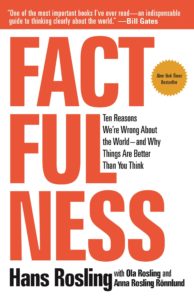 In the era of post-truth, where confirmation bias is rampant around the world, the book enlightens us on the importance of fact that helps to overcome fear and prejudice. It presents insights that narrow the gap between reality and what we think about various issues, such as poverty, education, environment, energy, population, etc., and explains how to break that prejudice. It also provides facts that the world is advancing day by day through use of clear data and statistics.
In the era of post-truth, where confirmation bias is rampant around the world, the book enlightens us on the importance of fact that helps to overcome fear and prejudice. It presents insights that narrow the gap between reality and what we think about various issues, such as poverty, education, environment, energy, population, etc., and explains how to break that prejudice. It also provides facts that the world is advancing day by day through use of clear data and statistics.
As you could see from the list, content about learning and dealing with society are popular at KDI library. So, if you finished reading this article, why don’t you drop by the library and enjoy reading this fall?
Related News
-
News381 days ago
KDIS Students Appointed as ‘Sejong Global Volunteers’ at the Sejong Nambu Police Station -
News437 days ago
KDI School Spring 2023: Opening Ceremony and Orientation for New Students -
Story591 days ago
Kazakhstan Alumni Association Conducted Briefing Meeting for New Students#KDISCHOOL #KDIS #interview #student #story #alumni #alumni association #new students
